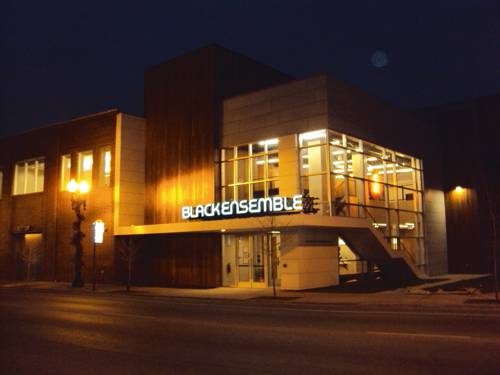
FAQ About The Influence of Black Theater on Social Change

What is Black theater?
Black theater refers to theater productions that are created by, for, and about Black individuals and their experiences. It encompasses a wide range of performances, including plays, musicals, and theatrical expressions that highlight issues relevant to the African diasporic community, often touching on themes of race, identity, and social justice.

How has Black theater influenced social change?
Black theater has influenced social change by providing a platform for Black voices and stories that highlight societal injustices and the Black experience. Through powerful narratives, these productions have raised awareness about racial discrimination, inequality, and cultural heritage, thus igniting conversations and inspiring activism. Black theater has often intersected with civil rights movements, amplifying calls for change and human rights.

What are some notable examples of Black theater impacting social movements?
Notable examples include plays like Lorraine Hansberry's A Raisin in the Sun, which provided insights into the struggles of Black families in America, and August Wilson's Pittsburgh Cycle, which captured African American life across different decades. These works have been instrumental in bringing racial issues to the forefront of public discourse, sparking discussions and informing activism.

Who are some prominent figures in Black theater?
Some prominent figures in Black theater include Lorraine Hansberry, August Wilson, George C. Wolfe, Ntozake Shange, and Suzan-Lori Parks. These playwrights and directors have made significant contributions to theater by exploring complex themes related to race, identity, and equity through their powerful and evocative productions.

Why is Black theater important for cultural representation?
Black theater serves as a critical platform for cultural representation, allowing Black people to see their stories, struggles, and triumphs portrayed authentically on stage. It challenges stereotypes and provides a nuanced portrayal of Black life, promoting understanding and empathy across different communities. This visibility is essential for fostering a more inclusive and equitable society.

How does Black theater address racial issues through its narratives?
Black theater addresses racial issues by telling stories that delve into the lived experiences of Black communities, often highlighting systemic racism, prejudice, and the fight for civil rights. These narratives challenge audiences to confront uncomfortable truths and inspire dialogue and change, thereby playing a crucial role in educating and mobilizing society towards equality.

In what ways does Black theater intersect with other art forms to promote social change?
Black theater often intersects with music, dance, and visual arts to enhance its storytelling and deepen its impact. For example, musical theater productions can include elements of jazz, hip-hop, or traditional African rhythms to complement narratives about racial identity and struggle. This blending of art forms can broaden the accessibility and reach of social messages, engaging wider audiences in the conversation.

What role do playwrights play in Black theater's influence on society?
Playwrights are at the forefront of Black theater's impact on society, using their creativity to craft stories that reflect real issues faced by Black communities. By shining a light on racial injustice, economic disparity, and cultural identity, playwrights provoke thought and conversation that can mobilize audiences toward activism and social change.

How has Black theater evolved over the years?
Black theater has evolved by adapting to the changing social and political landscapes. From its roots in the early 20th century as a response to racial exclusion in mainstream theater, it has grown to include a diverse range of voices and stories. Today, Black theater continues to innovate, incorporating contemporary issues and experimental forms to reflect the complexity of modern Black life.

What is the historical significance of Black theater in America?
The historical significance of Black theater in America lies in its role as a mirror to societal inequities and as a catalyst for discussion and action. Emerging during the Harlem Renaissance and continuing through the Civil Rights Movement, Black theater has consistently provided a voice for the marginalized, advocating for political and social reforms through art.

Can Black theater be seen as a form of activism?
Yes, Black theater can certainly be viewed as a form of activism. By highlighting issues such as racial inequality and injustice through compelling storytelling and performance, Black theater aspires to engage audiences in critical reflection and motivate societal change. It often presents a call to action, urging audiences to reconsider societal norms and contribute to the fight for equality.

How have audiences reacted to Black theater?
Audiences of Black theater have reacted with a mix of engagement, introspection, and sometimes discomfort. While many appreciate the frank discussions of race and injustice and are inspired to learn and act, others may find the confrontational nature of some performances challenging. Overall, Black theater plays a significant role in educating audiences and promoting deeper understanding and empathy.

What challenges does Black theater face today?
Black theater faces several challenges, including securing funding, gaining visibility in a predominantly white industry, and addressing the diverse experiences within the Black community. Despite these obstacles, Black theater continues to thrive by building networks of support, creating new and innovative works, and attracting diverse audiences eager to engage with authentic and meaningful stories.

How does Black theater educate audiences about Black culture and history?
Black theater educates audiences about Black culture and history by presenting stories that explore the rich traditions, struggles, and contributions of Black individuals. These performances often integrate historical contexts and cultural motifs to deepen understanding and appreciation, making both the historical and contemporary Black experience accessible and relatable to a wide range of audiences.

What is the role of Black-owned theaters in promoting social change?
Black-owned theaters play a vital role in promoting social change by providing spaces where Black voices are prioritized and cultural stories are celebrated. These institutions support the development of Black artists and create opportunities for productions that challenge societal norms, encourage dialogue, and foster community engagement focused on equity and justice.

How do Black theater productions address intersectionality within the Black community?
Black theater productions address intersectionality by exploring the diverse identities within the Black community, including aspects of gender, sexuality, class, and more. Through multi-layered characters and stories, these productions highlight how various forms of discrimination intersect, inviting audiences to consider the complexities of identity and the multiplicity of Black experiences.

What impact has Black theater had on mainstream theater productions?
Black theater has significantly influenced mainstream theater by introducing diverse narratives and perspectives that challenge the status quo. This impact is evident in the increasing number of productions featuring Black stories and talent on Broadway and beyond, prompting a shift towards more inclusive representation and storytelling in mainstream entertainment.

How does Black theater empower young Black creatives?
Black theater empowers young Black creatives by offering opportunities for education, mentorship, and collaboration. By seeing their stories and experiences reflected on stage, young artists are inspired to pursue careers in theater arts. Black theater organizations often provide platforms for budding actors, playwrights, and directors to hone their skills and gain valuable industry experience.

What future trends are emerging in Black theater?
Future trends in Black theater include the growing use of digital platforms and multimedia to reach wider audiences, increased focus on global Black narratives, and deeper explorations of contemporary issues such as climate justice and intersectional feminism. As audiences continue to diversify, Black theater is poised to expand its reach and influence, remaining a vital part of the cultural and social landscape.
